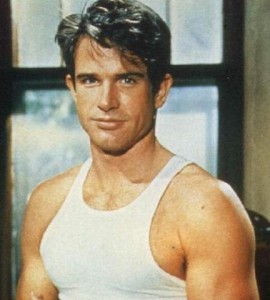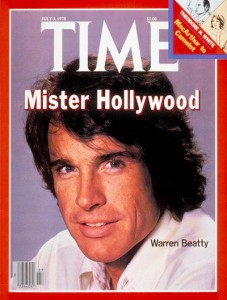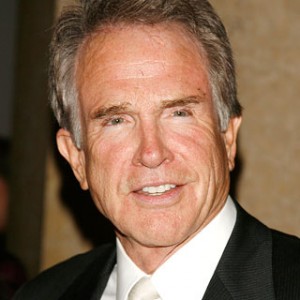

By Noah Forrest Forrest@moviecitynews.com
Come Back, Warren Beatty!
So I just finished reading Peter Biskind’s biography about Warren Beatty, “Star,” and I found it as enjoyable as all of Biskind’s other books about Hollywood. He has a knack for finding people that are willing to speak their minds about subjects that are usually taboo and off-limits according to the modern-day PR machine. Even if half the stuff in his books is not quite true, there is a verisimilitude that makes one shrug and go along with it.
In his Warren Beatty book, Biskind made me appreciate the career of Beatty more than I once had. Growing up, I was not a particularly big fan of Beatty. I saw Dick Tracy, Bulworth, Bonnie and Clyde and wasn’t particularly impressed with any of them. Bonnie and Clyde, in particular, is a film that is to be appreciated more than loved today. What was once such a novel idea, using techniques that were unheard of at the time, doesn’t really translate today. It’s a fine story told well, but it’s hard to feel the groundbreaking effect today that it had in 1967.
But when I saw Reds about five or six years ago, I was absolutely floored. That was when I saw Beatty in a different light. It’s a flat-out masterpiece about politics, love, and America. It is literally one of the most difficult undertakings that any star has ever attempted and if you read Biskind’s book, you’ll understand why it had to be Beatty and why it had to be at that time of his career. It’s rare that a movie star at the height of their power will choose a project that is so obviously divisive and controversial and throw their weight behind it. Not only that, he enlisted fellow superstars Diane Keaton and Jack Nicholson to join him. And rather than shy away from the responsibility of the film for fear of being called a commie, he took the reins as director, producer, star and writer.
I don’t want to get too bogged down in talking about Reds (and I could talk about it all day long), but I have to mention the thing that Beatty gets so right. As a life-long liberal, only he could have such an insight to craft scenes showing the in-fighting among liberals. It’s no wonder why liberals are often trounced by their conservative counter-parts – they’re too busy fighting each other. It’s an incredible insight into a part of politics that isn’t talked about often enough.
But the point that I really want to make is this: it’s been a decade since Beatty made a film (the atrocious Town and Country) and it doesn’t seem as if he has anything on the horizon. After reading the book and seeing what Beatty’s work habits are like, it’s not hard to understand why someone might not want to work with him. He’s demanding, exhausting, a ditherer, and a pest. Almost every film he’s worked on has been bogged down by over-runs and budget problems because the man seems almost pathologically incapable of making a decision (and this is someone that Arianna Huffington was championing for President in 2000). His last few films have been box office flops and nobody really knows who he is anymore. He’s only made six films since Reds came out in 1981. So, it’s not hard to see why his making a comeback might not be feasible.
But remember when Tarantino almost cast him in Kill Bill? That would have been perfect. No disrespect to the late David Carradine, but when you’re waiting the whole movie to finally meet “Bill,” it’s a bit disappointing when it turns out to be Carradine and not someone with the aura and star power of Beatty. But, those are the types of roles that Beatty should be doing now that he’s 74-years-old. He was always a leading man, not a character actor, so perhaps it’s hard for him to play a role like that, but he’d be great as the heavy in a film or as the type of guy who gives sage advice.
I mean, hell, I’d love to see him back on the big-screen as the leading man in any kind of film, but I just don’t know who else would pay to see that movie. I’d really love to see him act in a movie about an aging Casanova who is reaching the end of his life and looking back. What he really needs is a champion like Tarantino, or Fincher, or one of the Andersons to bring him back into the public eye. (Although one of the interesting tidbits in the book is that P.T. Anderson wanted Beatty for the Burt Reynolds part in Boogie Nights and Beatty insisted on playing the Dirk Diggler character!)
I suppose the thing that I found really upsetting when I finished Biskind’s book was the fact that there really aren’t that many iconoclast actors anymore. Who out there is similar to Warren Beatty? I guess one could make the case for George Clooney, but he’s too prolific. The man only made something like 20 movies in his lifetime and I guess that’s what ticks me off more than anything; he was such a talent and it’s a shame that we only have these 20 films. As a director, he only gave us four.
My favorite Beatty film, though, might be McCabe and Mrs. Miller. In Biskind’s book, it sounds like a miserable shoot since Robert Altman and Beatty were like oil and water, but the end result was one of the great Westerns of all-time. Beatty believed that great art usually resulted from “hostile intelligences” and when you see the finished films he’s made, it’s hard not to say that he might have a point.
Well, excepting Ishtar, of course.


















Warren Beatty is the greatest guty that God ever put on this Earth!. Just watched Dick Tracy the other day as a celebration for winning the lawsuit that he so well deserves!!!
You know, I actually don’t think Ishtar is as bad as the legends suggest–if it had cost less and been shot on a studio lot instead of a 40 million dollar budget in the desert of Egypt, it might have achieved what it was going for. There are some moments when you see what the film could’ve been had it stuck to the less bloated feeling of the Hope-Crosby pictures.
I used to not be a fan of Bonnie and Clyde as a kid, but watching it a few years ago with friends was a great experience for me. It totally woke me up to just how entertaining and complex the movie is, and I have essentially been converted to it. I’ve never seen Reds, but I love Shampoo, and there are parts of Dick Tracy that I always love watching when it comes up on HBO family. Beatty is the man.
It’s sad that no one knows who Warren Beatty is now days. Reds is a movie that is too underrated, it’s one of those rare films in Hollywood but in need of more people to show appreciation. It’s impossible to see another film that has similar material to Reds to come out today. Warren Beatty made one of the most iconic films in Hollywood, why can’t more people understand? 🙁
Good article. I agree. I always thought Warren Beatty grew more intriguing as he aged. I am disappointed he stopped making movies. He is only 74, there is so much art in this man, in his mind. I hope he does make one last great movie. He has so much talent. So I will continue to wait.
Great article Noah.
I am glad Beatty wasn’t Bill in Kill Bill. As to the absence, it would be an insult to his intelligence given the status quo in Hollywoodland these days. Why should every actor be obligated to a “come back”? Also, at the end of the day, the bottom line is he is wealthy enough to take time off, aren’t we all fools if we try to do something “just because”?
Bulworth stands up to repeat viewings, and Ishtar, c’mon, all those great songs “telling the truth can be dangerous business”
I am one of the few people who has championed the greatness of “Ishtar” since it was first released. It has an unwarranted bad reputation.